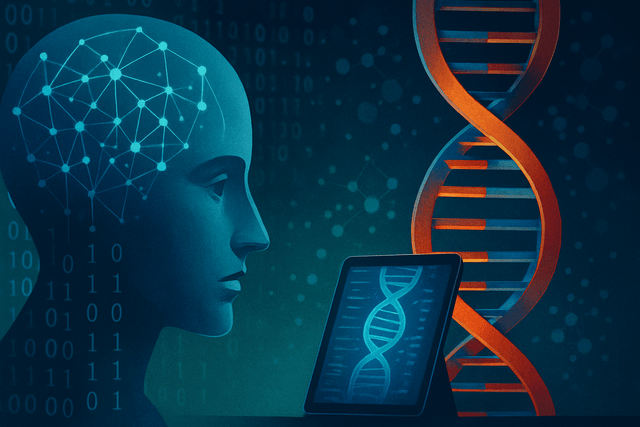In a major breakthrough for computational biology, Google DeepMind has developed an artificial intelligence system capable of deciphering one of biology's greatest mysteries: how the non-coding regions of our genome function.
Unveiled on June 25, AlphaGenome represents a significant leap forward in genomic AI. While previous models like AlphaFold tackled protein folding, AlphaGenome addresses a more complex challenge – interpreting the 98% of human DNA once dismissed as "junk" but now recognized as crucial for orchestrating gene activity.
The model's capabilities are unprecedented. It can analyze DNA sequences up to one million base-pairs long and predict thousands of molecular properties, including gene expression levels, RNA splicing patterns, and the impact of genetic mutations. For the first time, researchers can simultaneously explore how DNA variants affect multiple biological processes with a single tool.
"We have, for the first time, created a single model that unifies many different challenges that come with understanding the genome," says Pushmeet Kohli, DeepMind's vice president for research. The model outperformed specialized systems in 24 out of 26 genomic prediction benchmarks.
Dr. Caleb Lareau, a researcher at Memorial Sloan Kettering Cancer Center who had early access to AlphaGenome, called it "a milestone for the field" that provides "long-range context, base-level precision and state-of-the-art performance across a whole spectrum of genomic tasks."
While still in its early stages, AlphaGenome shows particular promise for understanding genetic diseases. It can predict how mutations in non-coding regions contribute to conditions like cancer and rare disorders by identifying how they disrupt gene regulation. In one test case, it successfully predicted how specific mutations activate a cancer-related gene in leukemia.
DeepMind has made AlphaGenome available via API for non-commercial research, with plans for a full model release in the future. The company envisions applications ranging from disease research to synthetic biology design, potentially revolutionizing genomic medicine and accelerating the development of new treatments.

